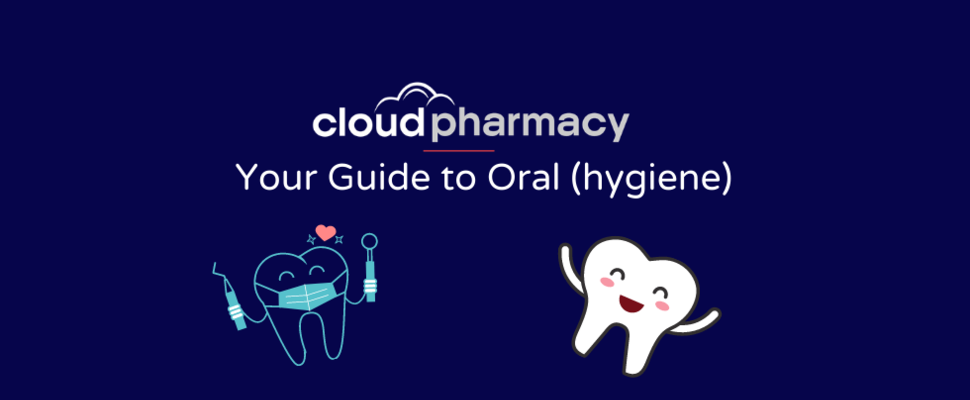An In Depth Guide Helping To Improve Your Oral Hygiene
Oral hygiene is more important than you might realise. In this guide we take a look at some common oral conditions, what they look like and how to treat them.
From the day we are born it is instilled into us that we must keep on top of our oral hygiene, make sure to brush your teeth at least twice a day and floss, in order to keep our pearly whites in as good a nick as possible. Yet, oral health is not solely limited to just your smile, it also includes your gums, nerves, tongue, throat, and even your lips. Recent studies have indicated possible associations between chronic oral infections and diabetes, heart and lung disease, stroke, and low birthweight or premature births. In essence, oral health refers to the health of the mouth but more importantly gives us an insight into the condition of the rest of the body. In this article we take a look at some common oral conditions, what they look like and how to treat them.
What Are Mouth Ulcers?
Mouth ulcers are red, white, yellow, or grey painful sores that appear in the mouth around the cheeks, lips, or tongue. Although they're uncomfortable, they’re usually harmless and most clear up by themselves within a week or two. In many cases the cause of mouth ulcers remains unclear though there are several triggers such as stress, anxiety, spicy foods, chocolate, and even stopping smoking. If you have a mouth ulcer you can avoid these foods and this will in turn speed up your recovery. Your pharmacist can recommend a protective paste to put over the area such asBonjela or Anbesol, antimicrobial mouthwashes, throat sprays and lozenges can also be used to help with the pain as well as paracetamol and ibuprofen. However, if your ulcer has lasted longer than three weeks, if you keep getting them, or if it becomes more painful or red you must see your local dentist or GP as a first point of call instead of your local pharmacist.
What Are Cold Sores?
Cold sores are small blisters that develop on the lips or around the mouth. They are caused by the herpes simplex virus and usually clear up without treatment within 7 to 10 days, you may not have any symptoms when you first become infected with the herpes simplex virus but an outbreak of cold sores may happen some time later. Cold sores often start with a tingling, itching or burning sensation around your mouth. Small fluid-filled sores then appear, usually on the edges of your lower lip. If you've had outbreaks of cold sores before, it's likely that you'll know what they are if they return.
You only need to visit your GP if you're unsure whether it's a cold sore or if it's severe and spreading further than just the lip. See your GP if a cold sore hasn't healed after 7 to 10 days. Antiviral creams are available over the counter from pharmacies without a prescription. If used correctly, these can help ease your symptoms and speed up the healing time. To be effective, these treatments should be applied as soon as the first signs of a cold sore appear – when you feel a tingling, itching or burning sensation around your mouth. Using an antiviral cream after this initial period is unlikely to have much of an effect. Cold sores are usually mild, but may cause complications in rare cases. People with weak immune systems caused by illness or treatments such as chemotherapy are particularly at risk of complications. Cold sores are at their most contagious when they burst, but remain contagious until they're completely healed. Avoid close contact with others until your cold sore has completely healed and disappeared. However, you just need to be careful by avoiding kissing and oral sex until the sore has completely healed, don't share common items such as towels or creams/medication, and always wash your hands before and after applying antiviral cream to help prevent further spread of infection.
What is Toothache?
Toothache refers to pain in and around the teeth and jaws that's usually caused by tooth decay. It occurs when the innermost layer becomes inflamed. This can be caused by cracked teeth, teeth decay, loose fillings, and receding gums. You may feel a toothache in many ways - it can come and go or be constant. Eating or drinking can make the pain worse, particularly if the food or drink is hot or cold. The pain can also be mild or severe. It may feel "sharp" and start suddenly. It can be worse at night, particularly when you're lying down. Toothache is always treated by your dentist, depending on the cause of the toothache determines the treatment outcome - you may need root canal or fillings. You can speak to your local pharmacist for advice on pain relief until you see the dentist but this will not cure your toothache. The best way to avoid getting toothache and other dental problems is to keep your teeth and gums as healthy as possible. To do this, you should:
- Limit your intake of sugary foods and drinks – you should have these as an occasional treat and only at mealtimes; read more about cutting down on sugar
- Brush your teeth twice a day using a toothpaste that contains fluoride - gently brush your gums and tongue as well
- Clean between your teeth using dental floss and, if necessary, use a mouthwash
- Don't smoke – it can make some dental problems worse
What is Gum Disease?
Gum disease is a very common condition where the gums become swollen, sore or infected. Most adults in the UK have gum disease to some degree and most people experience it at least once but it's much less common in children. If you have gum disease, your gums may bleed when you brush your teeth and you may have bad breath. This early stage of gum disease is known as gingivitis. Gum disease is caused by a build-up of plaque on the teeth. Plaque is a sticky substance that contains bacteria, some bacteria in plaque are harmless, but some are harmful for the health of your gums. If you don't remove plaque from your teeth by brushing them, it builds up and irritates your gums. This can lead to redness with bleeding, swelling and soreness. Mild cases of gum disease can usually be treated by maintaining a good level of oral hygiene. This includes brushing your teeth at least twice a day and flossing regularly. You should also make sure you attend regular dental check-ups. In most cases, your dentist or dental hygienist will be able to give your teeth a thorough clean and remove any hardened plaque (tartar). They'll also be able to show you how to clean your teeth effectively to help prevent plaque building up in the future.
In summation, by regularly brushing your teeth at least twice a day, flossing, using mouthwashes, and maintaining good oral hygiene you should hopefully never come across any of the conditions mentioned above. But if you are experiencing any of the symptoms mentioned or if your mouth doesn't feel quite right. It is important that you get medical attention either through your local pharmacist, dentist, or GP surgery.
















